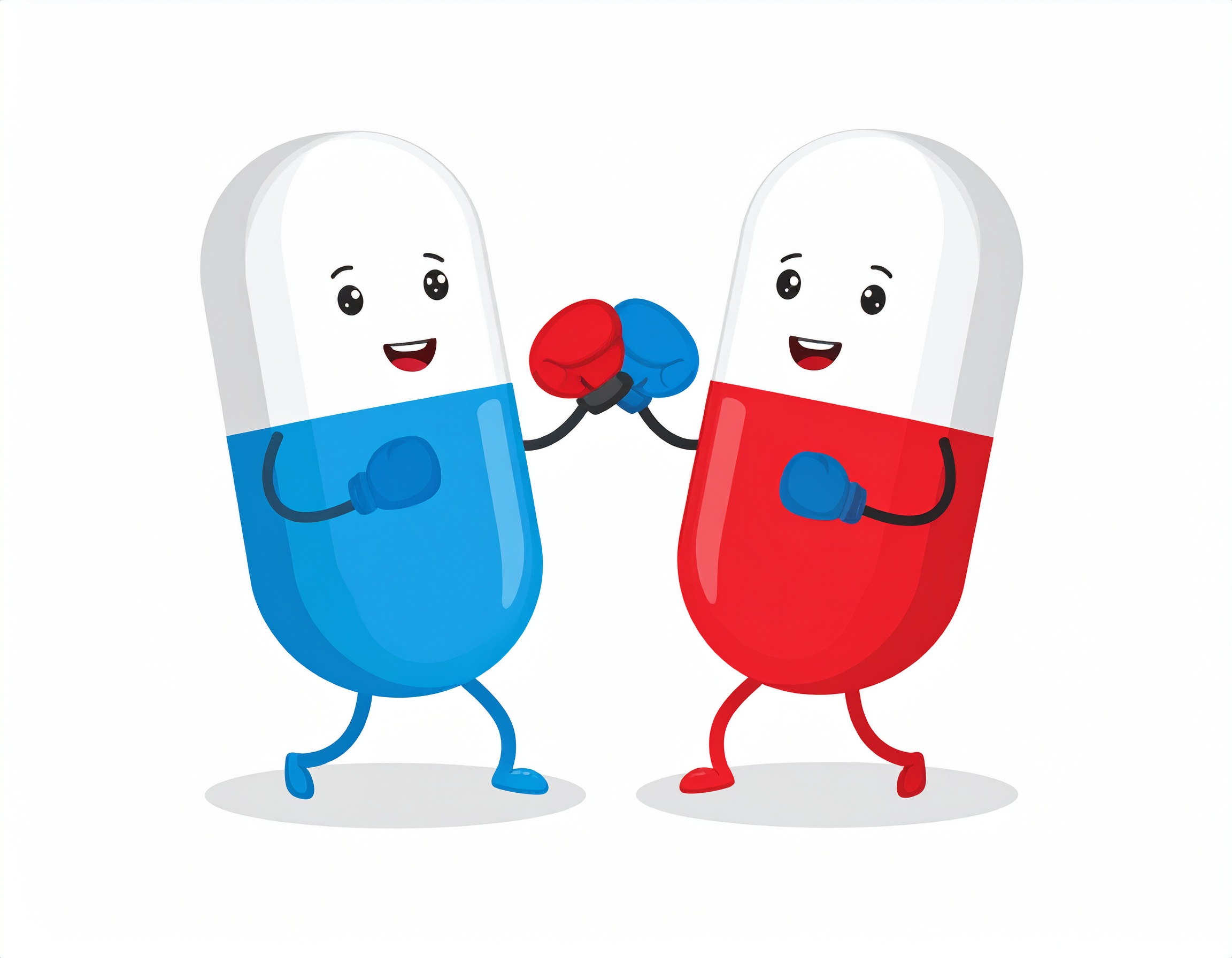Counteracting drug effects are all too common in geriatric and polypharmacy patients. I wanted to share common examples that I’ve seen in my practice as a clinical pharmacist.
- NSAIDs vs. Antihypertensives
Case: A 68-year-old man with hypertension controlled on lisinopril and hydrochlorothiazide starts taking ibuprofen daily for knee osteoarthritis. After two weeks, his blood pressure rises from 128/78 to 150/90. The NSAID has reduced the effectiveness of his antihypertensive regimen. Looking for more on NSAIDs? I’ve recently released a podcast on NSAID drug interactions.
- Beta-agonists vs. Beta-blockers
Case: A 60-year-old woman with COPD and atrial fibrillation is prescribed propranolol for rate control. She later develops worsening shortness of breath and wheezing. Propranolol is blocking the effect of her albuterol inhaler, leading to bronchospasm.
- Insulin/Sulfonylureas vs. Glucocorticoids
Case: A 72-year-old man with type 2 diabetes controlled on glipizide develops a COPD exacerbation and is prescribed prednisone. His blood glucose spikes to >300 mg/dL despite no change in diet. The prednisone is opposing the glucose-lowering effect of glipizide.
- Cholinergic Drugs vs. Anticholinergics
Case: An 82-year-old man with Alzheimer’s disease on donepezil starts taking diphenhydramine for sleep. He becomes more confused and disoriented within days. The anticholinergic action of diphenhydramine is opposing the cognitive benefit of donepezil.
- Stimulants (e.g., methylphenidate) vs. Sedatives (e.g., benzodiazepines)
Case: A 25-year-old college student with ADHD takes methylphenidate during the day and alprazolam at night for anxiety. Over time, he reports worsening focus and increased sedation. The sedative effects of alprazolam counteract the stimulant effects of methylphenidate.
These are all good examples of counteracting drug effects that could show up on board exams as well! Do you have any others that you see in your practice on a regular basis? Drop a comment below!



0 Comments